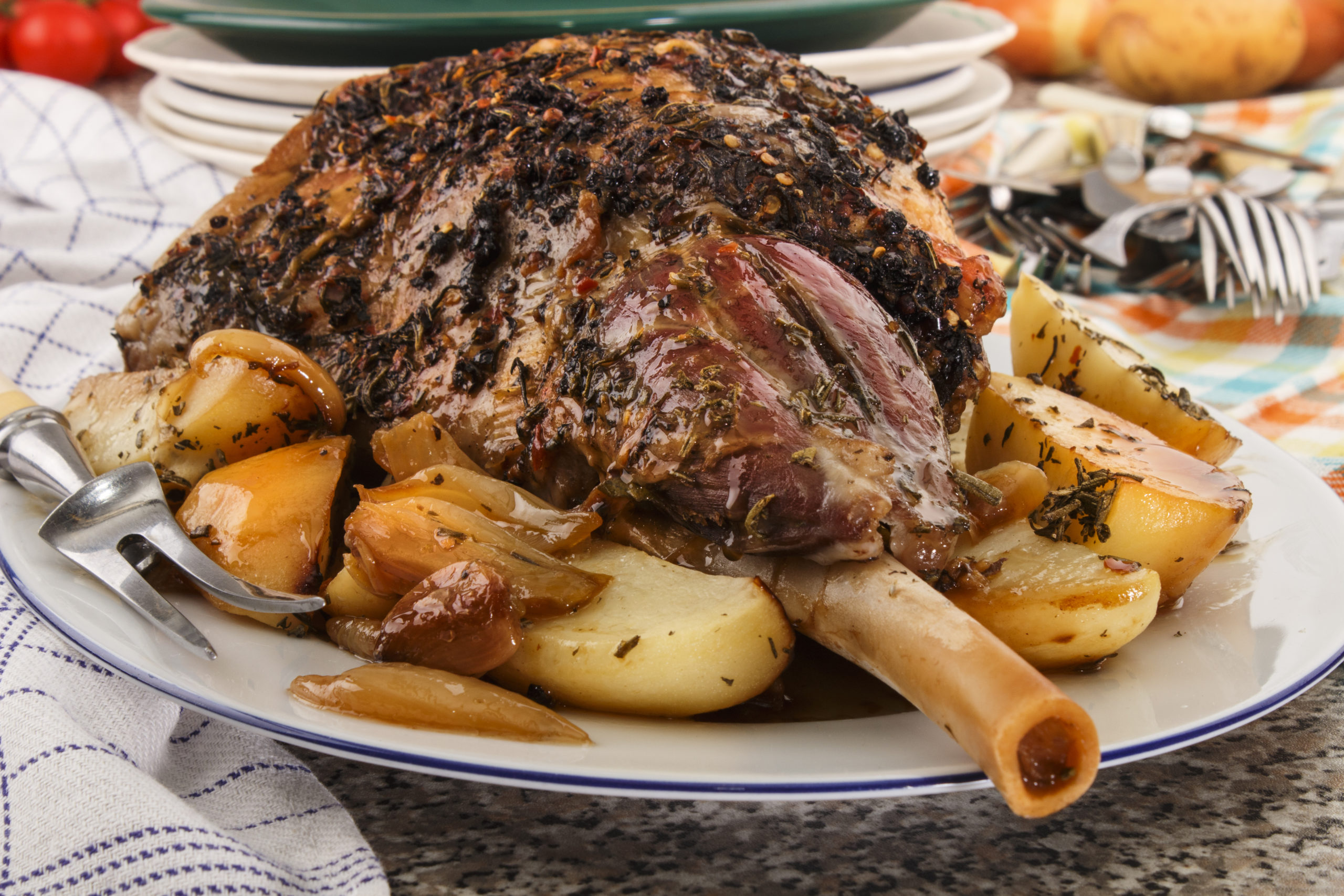francescool
Active member
Ive been craving this for so long! I just need to find a good butcher shop in my area and ill be all set. You need 1 whole lamb (30-35lbs) that will be marinated overnight in ladolemono (olive oil, lemon, oregano, salt, pepper). Prepare your workspace by cutting some contractor bags open and placing them flat on a sturdy table. Place the lamb on the spit. To secure the lamb, tie the legs to the spit using thick strong wire or U clips. You will also need to attach the spine of the lamb to the skewer by cutting 2 incisions into the lamb and using the U clips, or wire, to attach the spine to the skewer. Generously baste the whole lamb, inside and out, with the latholemono. Wrap the lamb up using the contractor bags and store overnight in a cold area or on ice. Prepare the rotisserie, or Souvla, by placing the wood charcoal in a pile right in the center. This will help the wood charcoal light better. Once the flame has died down, spread out the coal to both sides of the grill. Place the lamb on the highest rung of the souvla. The purpose of this is to slowly warm up the lamb. After about a half an hour you can lower it to be closer to the flame. Let the lamb slow roast, basting with the ladolemono every half hour or so. The lamb should take about 4-5 hours for an average 30-35lb lamb. Keep an eye on the lamb and raise the skewer higher if the lamb is beginning to burn.







